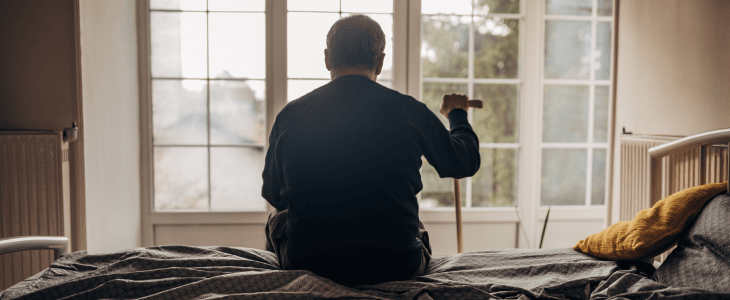It is well known that there is often inadequate staffing in nursing homes. Until recently, the severity of this issue was largely unknown. However, a recent survey conducted by the American Health Care Association (AHCA) revealed the severity of this problem. In this article, we discuss the results of the AHCA survey and the consequences of inadequate staffing in nursing homes.
The AHCA Survey
A survey conducted by the American Health Care Association recently revealed that approximately 86% of U.S. nursing homes face moderate to severe staffing issues, and around 96 percent of nursing homes in the U.S. struggle to hire additional staff. These statistics are the result of a survey that was completed by 524 nursing home providers throughout the U.S.
And although inadequate staffing in nursing homes has been a problem in the U.S. for many years, AHCA leadership recently stated that the struggle to hire workers into long-term care has never been so difficult. In fact, according to the survey, approximately 97 percent of nursing homes cited a lack of qualified or interested candidates as a major obstacle in hiring new employees. In addition, the survey revealed that over half of all nursing homes operate at a financial loss.
Consequences of Inadequate Staffing in Nursing Homes
The consequences of inadequate staffing in nursing homes are serious. When nursing homes are understaffed, employees often suffer from excessive stress and burnout, and this can make them more likely to abuse and neglect nursing home residents. And when nursing home residents are abused or neglected, this can cause them to suffer physical injuries, psychological trauma, and even death. Specifically, understaffing in nursing homes can cause the following problems:
Drops: When nursing homes are understaffed, single staff members are often called upon to do the work of multiple employees, including transporting residents. This can result in residents being dropped and suffering injuries.
Falls: It’s been proven that understaffing results in resident falls. For example, falls sometimes occur when residents attempt to walk on their own due to a lack of employees to assist them. In addition, understaffing means there are less employees available to observe residents and alleviate dangerous conditions that may lead to falls.
Bedsores: Nursing home employees are required to periodically rotate residents who are confined to their beds or chairs due to a lack of mobility. Facilities that are understaffed often fail to do so, however, leading to the development of bedsores.
Contact a Nursing Home Abuse Lawyer
If your loved one has been neglected or abused at a nursing home in New York, our experienced nursing home abuse lawyers are here for you. When you come to us for assistance, our nursing home abuse lawyers will aggressively pursue financial compensation for your loved one and work diligently to hold the responsible parties accountable for their actions. Please contact us to arrange an initial consultation with an experienced and talented New York nursing home abuse lawyer.

